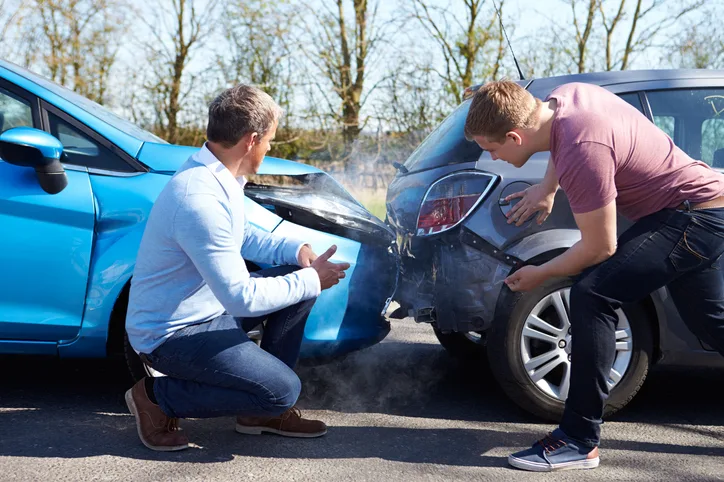Available 24/7
Se Habla Español
Free Case Evaluation
Evaluación gratuita de caso
(919) 438-0065

Liability for Car Damages: Who Pays?
Navigating Responsibility
Liability refers to the legal responsibility for causing damage or injury. The at-fault driver is typically responsible for the damages, due to evidenced negligence or reckless behavior. In North Carolina, the driver who is at fault for the accident is required to pay for the damages, either through their own insurance or out-of-pocket. However, if you are found to have contributed to the accident in any way, you are ineligible to recover any damages under North Carolina law. This is the doctrine of contributory negligence. Only four states (North Carolina, Virginia, Maryland, Alabama, as well as the District of Columbia) follow it. But it gives the other driver's insurance a lot of discretion when evaluating claims and denying them. Consequently, it is very important to speak with a North Carolina auto accident attorney as quickly as possible, before speaking to the other driver's insurance.
Drive Safely, Insure Wisely
Drivers are required to carry liability insurance, which is designed to cover any damages that they may have caused to another party. In North Carolina, the minimum requirements are:
· Bodily Injury Liability: Every driver is required to have $30,000 per person and $60,000 per accident to cover medical expenses for injuries to others.
· Property Damage Liability: Every driver is required to have $25,000 per accident to cover repairs or replacement for any damaged property of others.
If you are at fault in an accident, your liability insurance will cover the damages up to your policy limits. If you are not at fault, you can file a claim with the at-fault driver’s insurance. However, if they are uninsured or underinsured, or if you simply prefer a quicker resolution, you can use your own collision coverage, which covers damages to your vehicle regardless of fault.
Crash Course: Post-Accident Procedures
Post-accident, you may be unsure on how to recover damages and move forward. Here’s a couple of steps to take so that you are protected and covered.
1. Document the Scene: Capture photos or videos of the accident scene, vehicle damage, and any visible injuries, and gather contact information from witnesses.
2. File a Police Report: A police report will record an official account of the accident, which can help determine fault.
3. Notify Your Insurance Company: Promptly report the accident to your insurer with all of the necessary documentation.
4. Get a Damage Estimate: Obtain an estimate for the cost of repairs from a certified mechanic. This is useful in negotiations with insurance companies.
5. Consult an Attorney: There may be liability disputes, potential lawsuits, and confusing insurance claims. Accidents are a complex event, and you may need someone to help navigate all of the intricacies.
When it comes to figuring out who foots the bill for damages, things can get complicated. If you or someone you know has been in an accident, it’s important to have the best car accident attorney in North Carolina on your side. Paul Robinson Law is here to assist you, proudly serving Raleigh and the surrounding areas with dedication and expertise. Reach out today for a free consultation!
Call Us At
919-438-0065
105 S Ellington St, Clayton, NC 27520
124 St Marys St Ste 201, Raleigh, NC 27605
800 W Williams St #250 Apex, NC 27502
Clayton Office:
Phone : 919-438-0065
Raleigh Office:
Phone : 919-471-3200
Apex Office:
Phone : (919) 944-4630
105 S Ellington St, Clayton, NC 27520
124 St Marys St Ste 201, Raleigh, NC 27605
800 W Williams St #250 Apex, NC 27502
Copyright @2026 The Law Offices Of Paul Robinson. All Rights Reserved.
This site is for information purposes only. No attorney-client relationship is created by use of this site. No legal advice is intended by its use. An attorney-client relationship is only created speaking to an attorney and signing a representation agreement.
By providing your phone number, you agree to receive text messages from Paul Robinson Law, PLLC. Message and data rates may apply. Message frequency varies.

